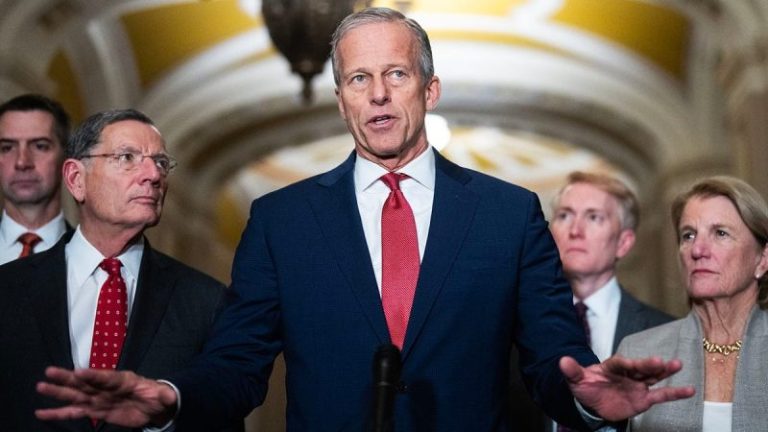Don’t panic yet! The USA TODAY Co. stands just a couple of clicks away from the perfect last-minute gift for the sports fan, music lover or avid reader in your life.
And it will arrive in time for holiday gift-giving.
Over the past year, USA TODAY and news outlets across the country have published more than two dozen hardcover, premium books on topics from championship seasons (Eagles, Dodgers, Buckeyes, Thunder, Gators, etc.), well-known figures (Uecker, Corso, Carter, Leo, etc.), musical icons (Grand Ole Opry’s 100th anniversary, Taylor Swift’s Eras Tour, Bruce Springsteen’s Jersey roots), historical events (Hurricane Katrina, Tropical Storm Helene, President Trump’s reelection) and so much more.
If you order a book (or two or three) right now, you can print out or download a gift voucher to say an incredible book will arrive soon. Put your voucher in a stocking or a card or wrapped in a box. Or include it in a Merry Christmas email.
In a week or two, your special someone will celebrate a second Christmas when a book arrives. Expect a second thank-you for your gifting skills!
Several new books are in production — including ones about Indiana’s top-ranked football team, the farewell season of the Buffalo Bills’ stadium and Trump’s 40 years at Mar-a-Lago — and they can be ordered now as gifts that will arrive a couple of months into the new year. Image Christmas in March!
Check out our lineup. Then check a gift (or two or three) off your last-minute to-do list!
Again, don’t panic. However, don’t procrastinate. The last minute is closer than you think. And USA TODAY Co. is here to help.
Amazing sports books!
“CHASING GOLD: A Kid’s Guide to the 2026 Winter Olympics.” Watch your little ones’ eyes light up as they discover figure skating, skiing and other winter sports, meet Team USA’s superstars and try the book’s fun activities such as Olympic bingo and crafts. Details at Gold.KidsGuidebook.com.
Buy our Winter Olympics book for kids now!
“LEE CORSO: Not So Fast, My Friend: A Tribute to the Soul of College Football.” Each of the 160 stunning pages celebrates what makes college football a cherished American passion. Besides insider stories about Corso’s career as a Florida Seminole (rooming with Burt Reynolds), college coach and beloved broadcaster, “Not So Fast, My Friend” includes tidbits about every major-college team and each of Corso’s 431 headgear predictions. Details at Corso.PictorialBook.com.
Buy our Lee Corso tribute book now!
“BOB UECKER: The Life and Career of the Milwaukee Brewers’ Legendary Broadcaster.” This 144-page hardcover brings to life the wit, wisdom and unparalleled storytelling of an American icon. Filled with rare photos and insider anecdotes, this book about “Mr. Baseball,” so dubbed by Johnny Carson, traces Uecker’s life from Milwaukee to a journeyman catcher to a Hall of Fame broadcaster to an actor, Miller Lite pitchman and self-deprecating funnyman. Details at Uecker.PictorialBook.com.
Buy our Bob Uecker tribute book now!
New for titles for 2026!
‘EARNHARDT! The Intimidator’s Life, Legacy and Enduring Popularity after 75 Years.’ Dale Earnhardt earned his nicknames of the Man in Black and The Intimidator by willing his black No. 3 Chevrolet past the competition and into the hearts and minds of NASCAR fans … and way beyond. With the 75th anniversary of his birth in April, The Daytona Beach News-Journal is producing a coffee-table book about the seven-time NASCAR Cup Series champion whose legend has only continued to grow, nearly 25 years after his tragic death on a last-lap crash at the Daytona 500. At 160 pages, the book will provide flag-to-flag coverage of Earnhardt’s long run as NASCAR’s leading man, with tons of classic photos and plenty of stories — old and new. Details at ManInBlack.PictorialBook.com. This book will not ship until April, to include Earnhardt coverage from this year’s 500, but gift vouchers are available right now.
Buy our Dale Earnhardt tribute book now!
“PERFECT! Indiana’s Historic Rise to the Big Ten Championship.” “PERFECT!” will chronicle how Indiana — 13-0, ranked atop the polls and the CFP’s top seed — scored at least 50 points in six games, beat Ohio State for the first time since 1988 and won its first outright conference title since 1945. It will chronicle Fernando Mendoza’s epic journey from a two-star recruit to winner of the Heisman Trophy, the Maxwell Award, the Walter Camp Award, the Davey O’Brien Award, the Graham-George Award as the Big Ten’s offensive player of the year and the Grange-Griffin Trophy as the MVP of the Big Ten championship game. Details at Indiana.ChampsBook.com. This book will not ship until February so that it can include how the Hoosiers fare in the College Football Playoff, but gift vouchers are available right now.
Buy our Hoosiers championship book now!
“FAREWELL TO THE RALPH: Remembering Where We Cheered, Froze, Cried and Bonded.” Since 1973, the Buffalo Bills’ stadium has gone by a multitude of names, topped by “The Ralph” after former owner and founder Ralph C. Wilson. The stadium has been home to countless highs and lows — from dramatic Josh Allen touchdown runs to the heyday of the early 1990s Super Bowl years. This 208-page coffee-table book from the Rochester Democrat and Chronicle commemorates The Ralph’s long and storied history as the gates close for good after the 2025 season. Details at BillsStadium.PictorialBook.com. This book will not ship until March — after a W in Super Bowl 60? — but gift certificates are available right now. Thousands already have reserved a copy of “Farewell to The Ralph.”
Buy our Bills stadium commemorative book!
“GOLDEN AGE AT MAR-A-LAGO: Donald’s Trump 40 years of society, celebrity and presidency in the Palm Beaches.” When Donald Trump arrived on the island, Palm Beach society took notice. He acquired and meticulously restored Mar-a-Lago, the legendary Marjorie Merriweather Post estate, and then did the unthinkable: He opened its gilded doors to the world, hosting spectacular galas that redefined the Palm Beach social season. Over four decades journalists from The Palm Beach Post and Palm Beach Daily News documented his remarkable ascent from ambitious developer to president of the United States, all as Mar-a-Lago evolved into the storied Winter White House. This 176-page collector’s edition offers an intimate chronicle of an extraordinary era through rare photographs, many previously unpublished, alongside exclusive accounts only the Palm Beaches’ papers of record can provide. Details at Trump47.PictorialBook.com. This book will not ship until April so that it can include the 2026 social season at Mar-a-Lago from Trump’s second winter of his second term. But gift vouchers are available right now.
Buy our Mar-a-Lago collector’s book now!
“RED REIGN: The Inside Story of Texas Tech’s First Big 12 Football Championship.” The Red Raiders dominated the Big 12, won 12 games by at least three touchdowns, whipped BYU twice in showdowns and claimed its first outright conference title since 1955 in the old Border Conference. Linebacker Jacob Rodriguez won the Dick Butkus Award and Bronko Nagurski Trophy and finished fifth in the Heisman Trophy voting. “Red Reign,” from the award-winning journalists at the Lubbock Avalanche-Journal, will chronicle Texas Tech’s best season ever with exclusive photography, behind-the-scenes access and game-by-game coverage. Details at TT.ChampsBook.com. This book will not ship until February so that it can include how the Red Raiders fare in the College Football Playoff, but gift vouchers are available right now.
Buy our Texas Tech championship book now!
“ANCHOR DOWN: How Heisman Finalist Diego Pavia Led Vanderbilt to its Historic 2025 Season.” To commemorate Vanderbilt’s amazing season, The Tennessean will chronicle how a quarterback who had zero Division I offers out of high school named Diego Pavia showed up in Nashville and helped transform a program that hadn’t reached double digits in victories in its history. But the book isn’t just his story. It’s the story of a team that bought in, a coach who never stopped believing and a fan base that finally got to see what Vanderbilt football could become. Details at Vanderbilt.PictorialBook.com. This book will not ship until February so that it can include how the Commodores fare in their bowl, but gift vouchers are available right now.
Buy our commemorative Vanderbilt book now!
“COACH STEVE’S YOUTH SPORTS SURVIVAL GUIDE: How Parents and Kids Can Get the Most of the Experience.” USA TODAY Sports columnist Stephen Borelli, a national authority on the $40 billion youth sports industry, offers his perspective and expert advice from sports figures ranging from Caitlin Clark to Andre Agassi, Shannon Miller, John Wooden, Annika Sorenstam and even Ted Lasso. Details at CoachSteve.USATbook.com. This book will not ship until March, but gift vouchers are available right now.
Buy Coach Steve’s survival guide for youth sports!
That championship season books!
“DYNASTY IN BLUE: The Dodgers’ Back-to-Back Championship Reign.” This 208-page collector’s book captures the historic season that cemented the Dodgers of the 2020s among baseball’s greatest dynasties. It’s all there with dynamic photos and insider stories — from Opening Day in Tokyo to Shohei Ohtani’s MVP season, Clayton Kershaw’s last hurrah, Yoshinobu Yamamoto’s playoff dominance and the dramatic home runs by Max Muncy, Miguel Rojas and Will Smith that won Game 7 of the World Series. Details at LAD.ChampsBook.com. Also available: “BLUE BLOODS: Superstars Align for LA’s 2024 Championship Run,” the story of Ohtani joining the 50-50 Club and the Dodgers crushing the Yankees in the World Series. Details at LA.ChampsBook.com.
Buy Dodgers 2025 championship book now! Buy Dodgers 2024 championship book now!
“FLYING HIGH: How the Eagles Soared to the Championship.” Saquon Barkley hurdled defenders backward, and Philadelphia kept the Chiefs from a three-peat. Details for this 208-page hardcover at Fly.ChampsBook.com.
Buy our Eagles championship book now!
“SCARLET REIGN: Inside the Ohio State Buckeyes’ Fight to Claim College Football’s Crown.” The Buckeyes steamrolled the College Football Playoff field by a combined score of 145-75. Details for this 208-page hardcover at OSU.ChampsBook.com.
Buy our Buckeyes championship book now!
“THUNDER UP! SGA’s MVP Season and OKC’s Historic Championship.” From Shai Gilgeous-Alexander’s MVP brilliance to the NBA’s best record to a thrilling seven-game NBA Finals, these 160 pages of stunning photography and behind-the-scenes stories capture the magic of a season that shook the NBA. Details at ThunderUp.ChampsBook.com.
Buy our Thunder championship book now!
“CHOMP-IONS! The Florida Gators’ Rise to the Top of College Basketball.” This 208-page coffee-table book takes Gator Nation courtside for Walter Clayton Jr.’s All-America heroics, crushing Tennessee’s spirit with a 30-point victory and another in the SEC title game, the impossible Elite Eight comeback against Texas Tech, the epic second half to eliminate Auburn in the semifinals and the wild finish against Houston for Florida’s third national championship. Details at Florida.ChampsBook.com.
Buy our Gators championship book now!
“RUN IT BACK! The Florida Panthers Repeat as Stanley Cup Champions.” This 144-page collector’s book relives another thrilling Final against the Edmonton Oilers, plus Sergei Bobrovsky’s mastery between the pipes, Sam Bennett’s scoring prowess in the playoffs, Matthew Tkachuk’s knack for agitating opponents and Brad Marchand’s goal in double overtime to prevent a 0-2 deficit in the Final. Details at Panthers.ChampsBook.com.
Buy our Panthers championship book now!
Music to your ears books!
“FULL CIRCLE: 100 Years of the Grand Ole Opry.” Celebrate a century of country music and its grandest stage. From Roy Acuff, Lester Flatt and Loretta Lynn to Reba McEntire, Carrie Underwood and Vince Gill! Packed with rare photographs, compelling stories and exclusive insights from The Tennessean in Nashville, “Full Circle” honors the legends who built the Opry stage, the stars who shine today and the rising voices shaping its future. Details at Opry100.PictorialBook.com.
Buy our Grand Ole Opry anniversary book!
“FROM FREEHOLD TO E STREET: Six Decades of Bruce Springsteen.” Before his rise from the backstreets of the Jersey Shore to global superstardom, reporters and photographers from the Asbury Park Press chronicled the emergence of The Boss. After that, they kept right on covering New Jersey’s folk hero. This book includes rare photos, concert reviews and interviews from the early days. Details at Bruce.PictorialBook.com.
Buy our Bruce Springsteen book now!
“THIS SWIFT BEAT: Following the Record-Shattering Eras Tour Around the World with Taylor Swift’s Most Devoted Fans.” Step into the whirlwind of sequins, screams and superstardom with a front-row ticket to the Eras Tour phenomenon, this century’s Beatlemania. Details at TSBeat.PictorialBook.com.
Buy our Taylor Swift tour celebration book!
Tragedy-to-triumph books!
“KATRINA’S LEGACY: The Hurricane That Changed America.” Twenty years later, USA TODAY and news outlets across the country provide a comprehensive look at the disaster that revealed our deepest flaws and our greatest capacity for compassion. These 160 pages give voice to the survivors from New Orleans and coastal Mississippi who showed profound resoluteness in the face of overwhelming destruction, the evacuees who built new lives in new places, and the countless strangers who became family during America’s darkest hours. Details at Katrina20.PictorialBook.com.
Buy our Hurricane Katrina remembrance book!
“MOUNTAIN STRONG: Tropical Storm Helene: Perseverance amid historic flooding, destruction in Western North Carolina.” Step into the heart of Appalachia, where the unyielding spirit of a community shines brighter than the darkest of storms. “Mountain Strong” stands as a poignant tribute to the strength and resilience of those who weathered the unimaginable. Details at Strong.PictorialBook.com.
Buy our Tropical Storm Helene book!
Famous people books!
“POPE LEO XIV: The First American Pope.” For centuries, American Catholics dreamed of this moment. Now, preserve it forever. This magnificent coffee-table book captures Robert Prevost’s remarkable journey from Chicago to missionary work in Peru and ultimately to the Chair of St. Peter. These 128 pages of dynamic photography and insightful stories will be a treasured keepsake of faith, heritage and American pride at a pivotal moment in the history of the Roman Catholic Church. Details at PopeLeo.PictorialBook.com.
Buy our Pope Leo commemorative book now!
“JIMMY CARTER: Peanut Farmer, 39th President, Humanitarian.” From humble peanut fields to the highest office in the land, Carter’s extraordinary journey exemplifies the American dream. This 160-page tribute captures the life of America’s longest-lived president: from a Georgia farmer to the White House and his even more impactful post-presidency years as a Nobel Peace Prize winner and tireless humanitarian. Details at Carter.PictorialBook.com.
Buy our President Carter tribute book now!
“POPE FRANCIS: A Tribute to the First Latin American Pontiff.” Celebrate the late pope’s humble spirit, compassionate leadership, transformative papacy and historic significance as the first cleric from the Americas to lead the Roman Catholic Church. Looking for a thoughtful present for someone whose Catholic faith guides his or her life? Each of the 160 beautifully crafted pages offers a chance to reflect on his teachings and read his words that brought comfort and inspiration to millions around the world. Details at PopeFrancis.PictorialBook.com.
Buy our Pope Francis tribute book now!
“DONALD TRUMP: The Road to a Historic Second Term.” This 160-page hardcover volume captures the electrifying journey of President Trump’s unprecedented return to the White House. From the campaign trail to the debates, multiple assassination attempts and Inauguration Day, every pivotal moment of Trump’s remarkable political comeback is immortalized in vivid detail and with striking photography. Own a piece of American history — a collector’s item to save for future generations. Details at Trump.PictorialBook.com.
Buy our historical President Trump book now!
Sports legacy books!
“ROAR OF 125: The Epic History of the Detroit Tigers.” This archival-quality, 208-page hardcover chronicles 125 seasons of Tigers baseball. Al Kaline. Miguel Cabrera. Hammerin’ Hank Greenberg. Tram & Lou. Sparky. Verlander & Scherzer. Prince Hal. Galarraga’s 28-out perfect game. Wire-to-wire and Gibby’s homer in 1984. McLain’s 30 victories, Lolich’s three in the World Series and Horton’s throw to nab Brock in ’68. The Corner. The CoPa. It’s all there, plus an all-time Tigers team picked by the Detroit Free Press. Details at Tigers125.PictorialBook.com.
Buy our Tigers 125th anniversary book now!
“BIG RED MACHINE: Cincinnati’s Dynasty 50 Years Later.” Until the Dodgers won the World Series in 2024 and 2025, no National League team had won back-to-back championships since the Reds in 1975-76. With this 160-page 50th anniversary book, Reds fans can step back to a legendary period in Major League Baseball history. Every page from The Enquirer immerses fans in the era’s defining moments and personalities. Every Reds fan recalls the “Great Eight:” Pete Rose, Joe Morgan, Johnny Bench, Tony Perez, George Foster, Ken Griffey, Dave Concepcion and Cesar Geronimo. Feel the roar of Riverfront Stadium echo through these pages and reconnect with the pride and passion that made the Big Red Machine a force unlikely any other in baseball. Details at Reds.PictorialBook.com. Also available: “Pete Rose: A Tribute to a Baseball Legend,” this 160-page hardcover chronicles the career of baseball’s all-time Hit King. Details at Pete.PictorialBook.com.
Buy our Big Red Machine anniversary book! Buy our Pete Rose tribute book now!
And even more sports books!
“DAWN OF THE DUCKS: The Inside Story of Oregon’s Epic March to the Big Ten Championship in Season One.” In 2024, the Ducks finished the regular season unbeaten and ranked No. 1 after beating Penn State in the Big Ten championship game. Details at Oregon.PictorialBook.com.
Buy our Ducks commemorative book now!
“CULTURE SHOCK: The Inside Story of the Best Football Season in Indiana History.” In 2023, the Hoosiers lost nine of their 12 games. In 2024, new coach Curt Cignetti inherited a team picked for 17th in the Big Ten but finished 11-2 and reached the College Football Playoff. Details at Indiana.PictorialBook.com.
Buy our Hoosiers commemorative book now!
“GOLD RUSH! How the Indiana Pacers claimed their first Eastern Conference title in 25 years.” Boom, Baby! With a series of late-game heroics, Tyrese Haliburton led the Pacers to Game 7 of the NBA Finals against the Thunder only to suffer a torn Achilles tendon in the first quarter. Details at Pacers.PictorialBook.com.
Buy our Pacers commemorative book now!
“INSPIRING WOMEN OF INDIANA SPORTS: They Changed the Games We Love.” The Hoosier State has produced champions across every sport imaginable — from Caitlin Clark’s record-breaking performances to trailblazers in track and field, swimming and diving, gymnastics, soccer, cycling and beyond. Read how they have inspired generations of athletes to chase their dreams. Details at WomenIN.PictorialBook.com.
Buy our book on inspiring Indiana women now!
“THE BIG HOUSE: Celebrating 60 years of high school basketball championships at State Fair Arena.” This 144-page keepsake from The Oklahoman celebrates the six decades high school basketball teams chased glory and fans roared with pride at an Oklahoma City arena nicknamed The Big House. The book includes coverage of all the state champions from 2025, the arena’s final season. Details at OKBigHouse.PictorialBook.com.
Buy our book celebrating OKC’s Big House now!
From our vault books!
Looking for other gift options? We have much, much more from years gone by.
“NICK SABAN: A Career That Changed Alabama Football Forever.” With a foreword by Miss Terry. Saban won seven national championships, including six with the Crimson Tide, before retiring after the 2023 season. Details at SabanBook.com.
Buy our Nick Saban tribute book now!
“MAIZE & GRAND: Michigan’s Epic March to the 2023 National Title.” The Wolverines also won their 1,000th game — the all-time record — and handed Saban a loss in his final game. Details at Michigan.ChampsBook.com. Also available: “HAIL, YES! 25 Years Later,” the amazing story of the 1997 Wolverines, who ended a 49-year national championship drought. Details at UM.PictorialBook.com.
By our 2023 Wolverines championship book now! Buy our 1997 Wolverines championship book now!
“WHERE LEGENDS ROAM: The Greatest Players, Coaches and Teams to Play at Lambeau Field.” From Starr to Farve to Rodgers. From Lombardi to Holmgren. From the Ice Bowl to the Lambeau Leap. Details at LambeauBook.com.
Buy our Lambeau Field commemorative book now!
“150 YEARS OF THE KENTUCKY DERBY: Through the Lens and Voice of The Courier Journal.” From Aristides to War Admiral to Citation to Secretariat to Seattle Slew to Justify to Mystic Dan. All the drama, all the glory, all the hats! Founded in 1868, The Courier Journal is only seven years older than the Kentucky Derby and has covered all the races at Churchill Downs. Details at Derby150.PictorialBook.com.
Buy our Kentucky Derby anniversary book now!
“DOMINANT DAWGS: Georgia’s Journey to the 2021 National Championship” AND ‘GLORIOUS: Georgia Secures its Second Consecutive National Title with a Perfect Season’ AND “DAWGS RISING: How Kirby Smart Transformed Georgia into a Perennial Contender.” These books from the Athens Banner-Herald commemorate the Bulldogs’ national championship seasons of 2021 and 2022 and Kirby Smith’s accession to the top of his profession. Details at UGA.PictorialBook.com, ABHbook.com and Smart.PictorialBook.com.
Buy our Georgia 2021 national championship book! Buy our Georgia 2022 national championship book! Buy our Kirby Smart commemorative book now!
“BOB KNIGHT: On the Record: The Story of a Complex Character and Hall of Fame Coach.” With a foreword by Steve Alford. Details at Knight.PictorialBook.com.
Buy our Bob Knight tribute book now!
“UNMATCHED: Caitlin Clark’s Remarkable Journey, From Her Iowa High School Career to Breaking Collegiate Records and Captivating the Nation.” Details at Caitlin.PictorialBook.com. AND “FEVER PITCH: How Caitlin Clark Captivated the Basketball World and Won Rookie of the Year.” Details at Clark.PictorialBook.com. Experience the phenomenon that is Caitlin Clark with two hardcover books — one from The Des Moines Register and one from the IndyStar — totaling 304 pages filled with photos from her life and stories of her exploits.
Buy our book about Caitlin Clark at Iowa Buy our book about Caitlin Clark with the Fever
Deck your walls!
The USA TODAY Network also has a series of page prints for fans looking to adorn their walls with memorable moments, including the Dodgers, Eagles, Thunder, Panthers and Aces celebrating 2025 pro championships and Ohio State (football), UConn (women’s basketball), Florida (men’s basketball), Wisconsin (women’s hockey), Texas (softball) and LSU (baseball) celebrating college championships.
Other page prints commemorate the winners of the Kentucky Derby (Sovereignty), Indianapolis 500 (Alex Palou) and U.S. Open (J.J. Spaun and Maja Stark). There’s a page print of Lee Corso making his final headgear prediction: Brutus rules! And there’s a page print of Pope Leo XIV: America’s turn!
These color, full-page prints come in a variety of sizes and styles. Go to usatodaystore.com and search for the team’s name, the two-legged or four-legged athlete’s name, or the broadcaster’s or pontiff’s name.
Buy our commemorative page prints now!
Contact Gene Myers at gmyers@usatodayco.com. Follow him on X @GeneMyers. After nearly a quarter-century as sports editor at the Detroit Free Press, Myers unretired to coordinate book and page print projects across the USA TODAY Network. Check out more books and page prints from the USA TODAY Network coming every month.
This post appeared first on USA TODAY










